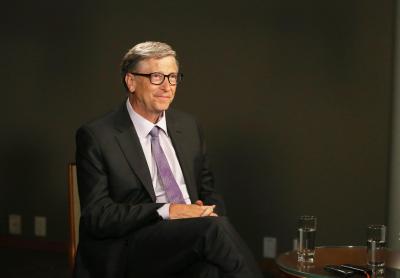At a time when several countries including India are in the grip of a massive second wave of Covid 19, Microsoft co-founder and philanthropist Bill Gates’ recent statement on vaccines came as a shock reflecting the narrow mindedness of the rich nations — home to Big Pharma.
In a recent interview to the UK based Sky News, Gates clearly said that the patents for Covid 19 vaccines must be kept in-tact and that the formula of the drugs need to be protected.
When asked whether the patent law for Covid 19 vaccines needs to be changed in a bid to augment production, his curt reply, “no”, has horrified the world.
“There's only so many vaccine factories in the world and people are very serious about the safety of vaccines. And so moving something that had never been done, moving a vaccine, say, from a [Johnson & Johnson] factory into a factory in India, it's novel, it's only because of our grants and expertise that can happen at all,” he said.
It is no secret that the developed nations including the US and UK have embarked on a never-before aggressive vaccination drive.
“For months, developed economies have hoarded Covid-19 vaccines and the raw materials needed to make them. Now, they’re being forced to act as an explosive outbreak in India raises the risk of new virus mutations that could threaten the wider world,” a report by Bloomberg noted.
“Practically, this has brought out the divide between the developed and the developing countries, and it is even more appalling that this comes when the world should have been united to fight the virus,” an analyst who did not wish to be identified told India Narrative.
The move to protect patents essentially also means that the developing nations are left to themselves to find a feasible vaccine programme while the rich countries get vaccinated rapidly.
Recently, at Boao Forum for Asia (BFA), Bangladesh Prime Minister Sheikh Hasina stood out as a developing country leader against "vaccine apartheid". During the forum, she argued that all nations need to work together to ensure availability of Covid 19 vaccines across the globe. The leader added that the vaccines are global public goods and that the United Nations and other international institutions must play an active role to meet the demand of every country.
In a recorded speech at the Boao Forum for Asia (BFA), the Prime Minister said: "All nations need to work together to make the UN and other international organisations effective so that everyone's requirement of vaccines and medical requirement are met."
Meanwhile, as the developed countries continue with their vaccination programme, India is left to manufacture vaccines for almost half of the population living in the developing countries. While India’s vaccination drive has slowed down with slowing production, the US only recently approved exports of critical raw material used for vaccine manufacturing.
Ironically, last year, India along with South Africa–the two major emerging economies– had sought a waiver from patent protections for Covid 19 vaccines so that the drugs are available for mass application. While several developing nations have come forth supporting the proposal, the developed countries have opposed the move.
Severe consequences
However the consequences of such aggressive vaccine nationalism will slow down the global recovery process. “The world has to come out of the pandemic to be able to collectively once again work towards boosting economy, lives and livelihoods,” another expert said. India, the largest vaccine manufacturer in the world, too on its part needs to resolve issues at the earliest to remain at the top.
“Or else, many other countries will come up with facilities for vaccine production, which would be a big blow to India,” he said.




















